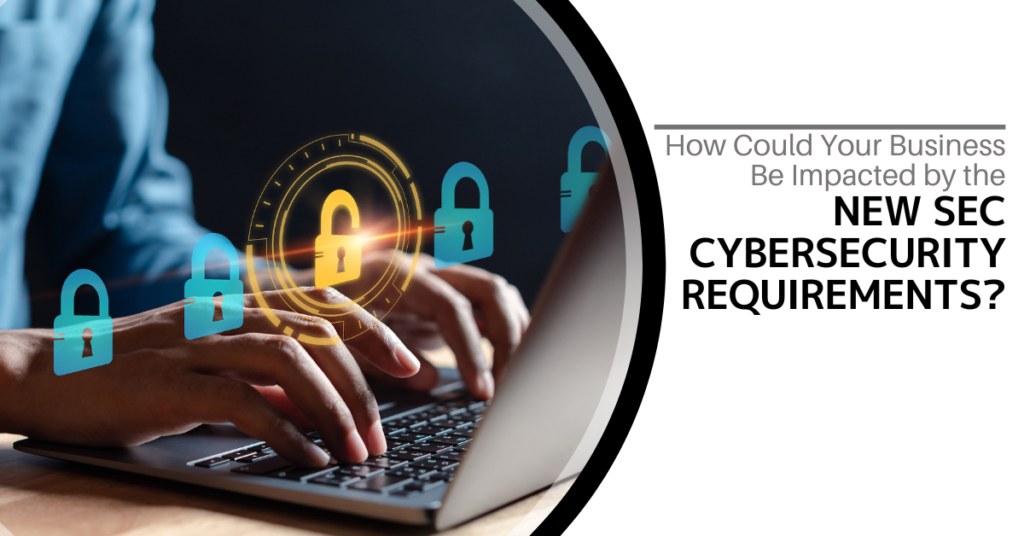|
Getting your Trinity Audio player ready...
|

SEC Cybersecurity Regulations: Understanding and Preparing for Compliance
In today’s global business environment, cybersecurity has become a pressing concern due to increasingly complex threats to data security. To address these challenges and protect sensitive information, the U.S. Securities and Exchange Commission (SEC) has introduced new cybersecurity regulations that will significantly impact how businesses manage their cybersecurity practices.
The recent SEC regulations aim to tackle the growing risks posed by cyber threats and help companies improve their data security measures. This article will explore the key elements of these SEC guidelines and discuss how they may affect your business.
Exploring the Latest SEC Cybersecurity Regulations
The Securities and Exchange Commission (SEC) has issued updated cybersecurity regulations to promote proactive security measures, with a key focus on promptly reporting cybersecurity breaches and disclosing the security protocols in place.
These new rules apply to both U.S. companies and foreign private issuers registered with the SEC, highlighting the importance of complying with these cybersecurity standards.
Handling Reports of Cybersecurity Breaches
One of the central aspects of the SEC’s regulations is the requirement to disclose cybersecurity incidents publicly. Organizations must now report incidents through a section in Form 8-K called Item 1.05.
Businesses are required to disclose this information within four days of determining that an incident is significant. The disclosure must include specific details regarding the nature, extent, and timing of the breach. Additionally, companies must describe how the incident has materially affected them. The only exception to this rule is if disclosure could pose a national safety or security risk.
Revealing Security Measures for Online Protection
In addition to reporting incidents, companies must also disclose their cybersecurity procedures in their annual Form 10-K filings. This includes providing detailed information on how they evaluate, supervise, and mitigate cybersecurity threats and vulnerabilities. Key disclosures include:
- The company’s method of recognizing and dealing with cybersecurity risks.
- Any potential cybersecurity threats that have impacted or are expected to affect the company.
- The board of directors’ oversight of cybersecurity vulnerabilities.
- Management’s role and expertise in handling cybersecurity risks.
How SEC Regulations Might Impact Your Company
If your business is subject to the new SEC regulations, it’s essential to review your cybersecurity procedures now. Performing cybersecurity evaluations and penetration testing may uncover weaknesses and reduce the chances of regulatory violations or cyber incidents.
The new SEC regulations could potentially impact several areas of your business:
Increased Compliance Responsibilities
Meeting the SEC’s updated cybersecurity regulations could increase the compliance burden for companies. It may necessitate changes to existing cybersecurity measures, aligning them with SEC guidelines. This will likely require significant time and resources, as well as adopting new technologies, and is as important for small businesses as it is for large corporations.
Enhanced Focus on Incident Response
The SEC guidelines stress the importance of having effective incident response plans. Businesses must develop and implement strategies for detecting and responding to cyber incidents quickly. This includes having well-defined procedures for notifying regulatory bodies, customers, and other stakeholders affected by a data breach.
Importance of Vendor Management
Many companies rely on third-party vendors for their operations, and the SEC’s new regulations emphasize the need to review these vendors’ cybersecurity protocols. Businesses must now assess the security measures implemented by their partners and consider switching to more secure options if needed. This change places a responsibility on companies to ensure their entire vendor network is protected against cyber threats.
Impact on Investor Trust
Cybersecurity breaches can damage investor confidence, and the SEC’s focus on cybersecurity is likely to make investors more attentive. Companies with strong cybersecurity measures can cultivate greater trust among investors, potentially enhancing shareholder confidence and investment opportunities.
Push for Cybersecurity Innovation
As businesses work to comply with the SEC regulations, there will likely be an increased demand for state-of-the-art cybersecurity solutions and technologies to safeguard critical information. This heightened demand may drive innovation in the cybersecurity sector, leading to the development of more advanced protection measures against cyber threats.
Navigating Possibilities Amid SEC Cybersecurity Hurdles
The SEC’s new regulations mark a significant step in the fight against cybercrime. While they present challenges in terms of compliance, they also offer opportunities for businesses to strengthen their cybersecurity posture, build customer trust, and enhance relationships with investors.
By proactively adapting to these changes, businesses can not only meet regulatory requirements but also improve their security in an increasingly digitized world. The ability to adjust to these evolving cybersecurity standards will be essential for long-term success and business resilience.
Looking for Assistance with Cybersecurity Compliance?
Understanding and complying with the SEC’s cybersecurity regulations can be complex. Rest assured, our experienced team is ready to help your business stay compliant without straining your resources.
Contact us today to schedule a consultation.
Twintel has grown into an expansive, full team of IT services professionals, acting as the outsourced IT department of non-profits, small to mid-size businesses, and enterprise-level corporations in Orange County, across California, and nationally.
Today, it’s the strength and deep expertise of the Twintel team that drives positive outcomes for clients. Each of the support staff, technicians, and engineers works diligently each day to make sure that the companies served have the seamless, secure, and stable IT environments needed to allow them to pursue their organizational objectives.